AO Edited
Reiling Dredge
Above Breckenridge, a destructive mining technique sits sunken in a small pond.
Placer mining is a method of digging up rocks and soil from old stream deposits, using water to separate rocks from gold nuggets and flakes. Prospectors used flat pans to find enough gold to establish a claim. Sluice, riffle, and rocker boxes were used to work claims that showed promise.
Deposits around Breckenridge were particularly rich with gold and lent themselves to more mechanized methods of placer mining. The sluice, riffle, and rocker boxes were built into boats that were floated on their own ponds. By using mechanical arms, buckets were able to dig into the stream around 40 to 50 feet deep. Known as dredges, these boats could start at the bottom of a stream and dig their way upstream. The larger rocks and unproductive gravel were thrown off the back of the boat, filling the pond as the operation moved upstream. This process did cause damage to bodies of water.
The Reiling Dredge is one of the last early 20th-century in situ examples of these floating gold mines. At least eight of these dredges worked the placer mines around Breckenridge. The Reiling Dredge operated from 1908 to 1922, moving 2,000 cubic yards of rock per day. It moved from the Blue River up French Creek leaving behind miles of tailings.
In 1922, the dredge sank in the pond where it sits today. The dredge was declared an endangered historic site in 2015 and was stabilized in 2018.
Know Before You Go
The dredge is a short hike off French Gulch Road about three miles to the east of Breckenridge. A three-mile hike is also available through the forest to the south of French Creek with some interpretive signs.

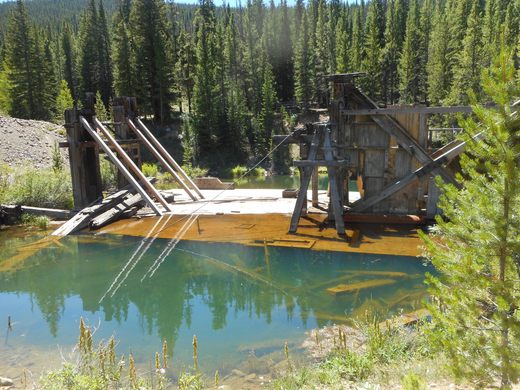

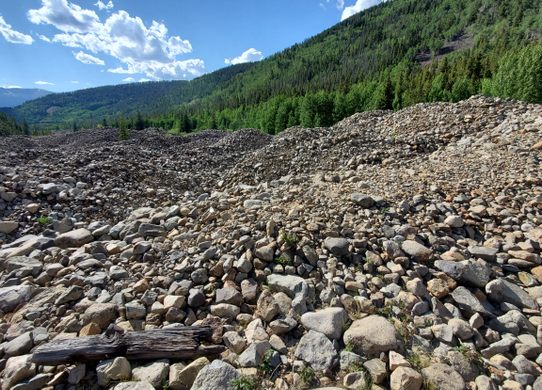
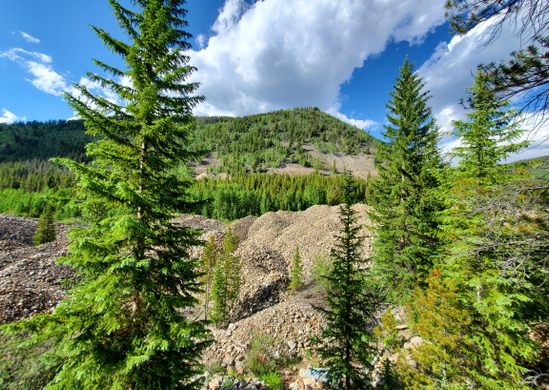
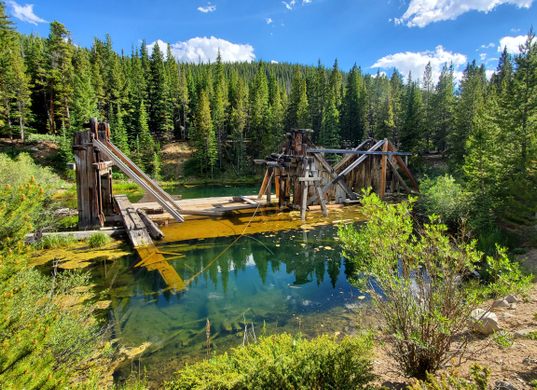
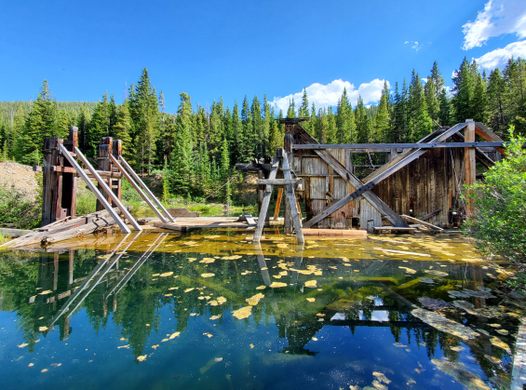
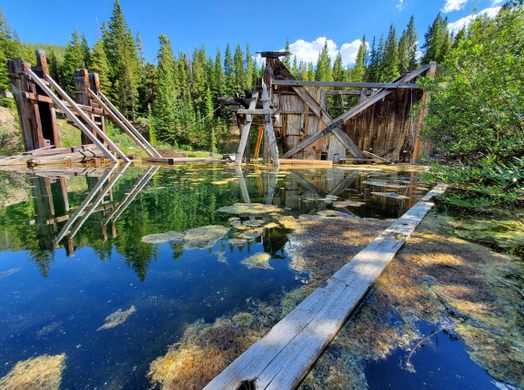
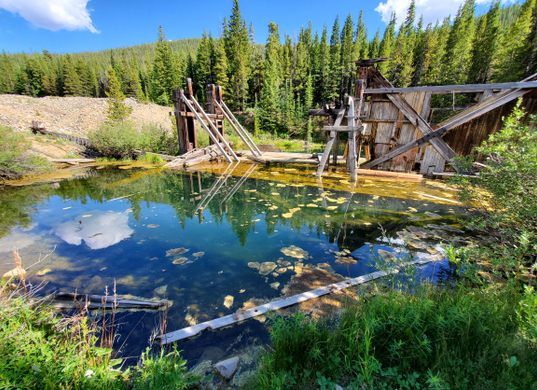
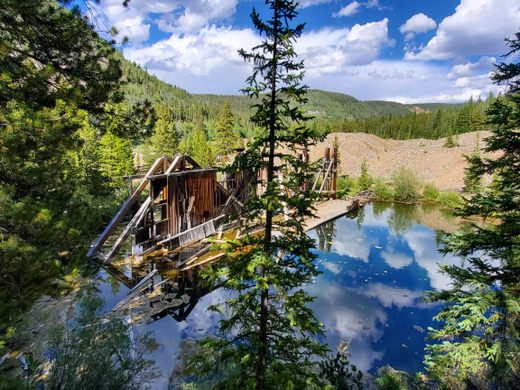
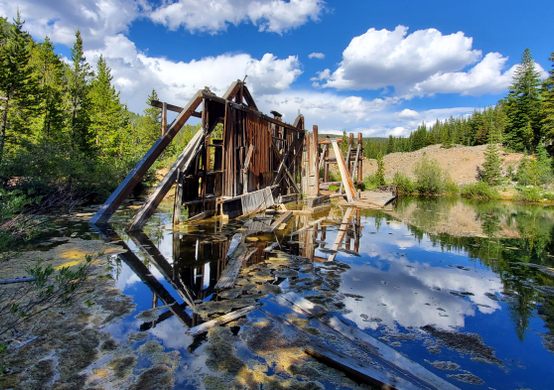
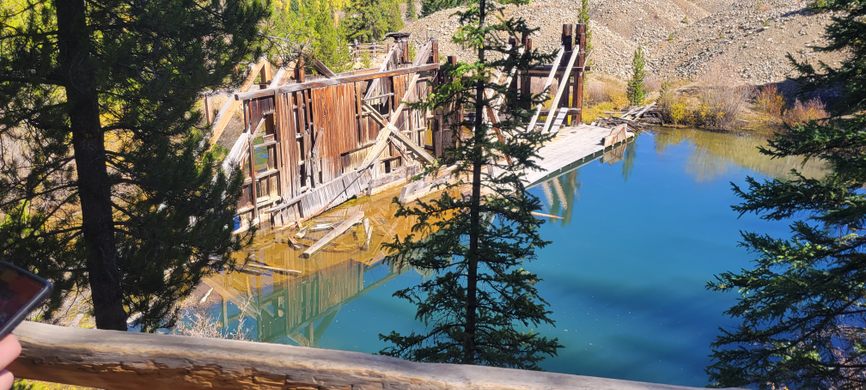

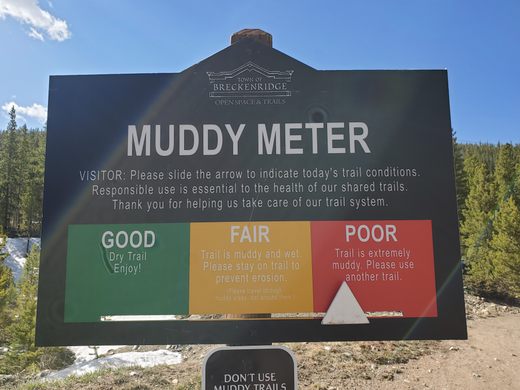
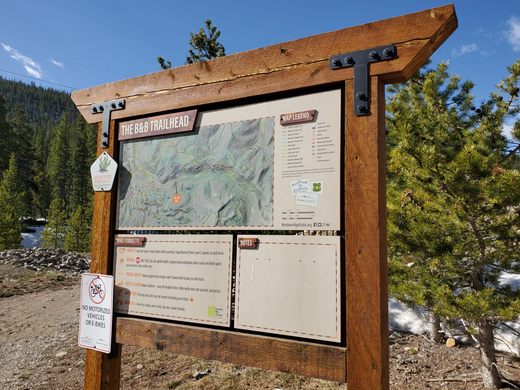
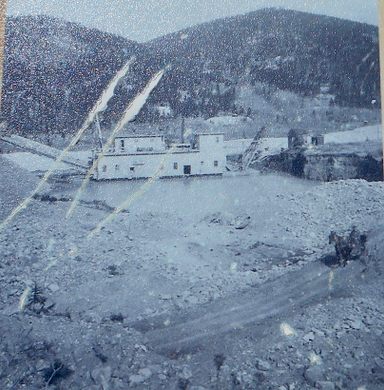
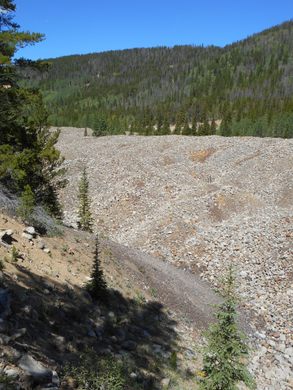

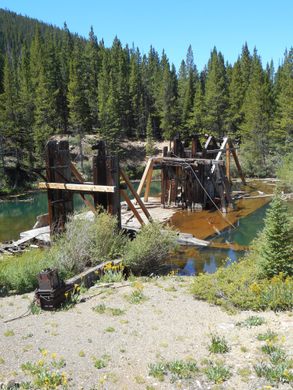





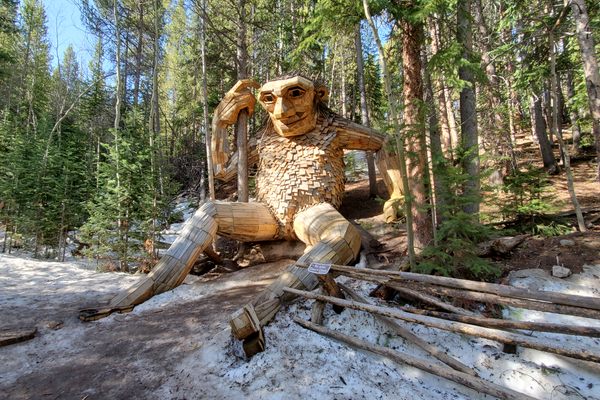
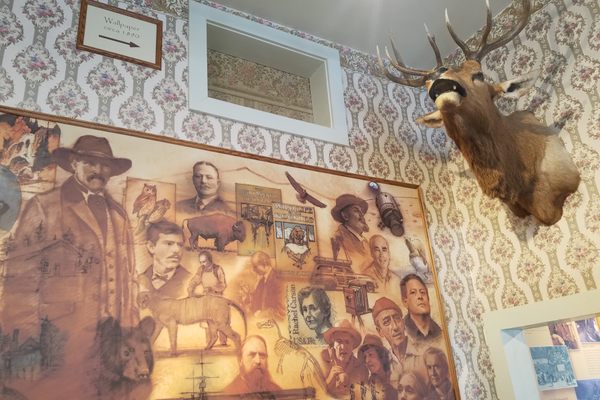
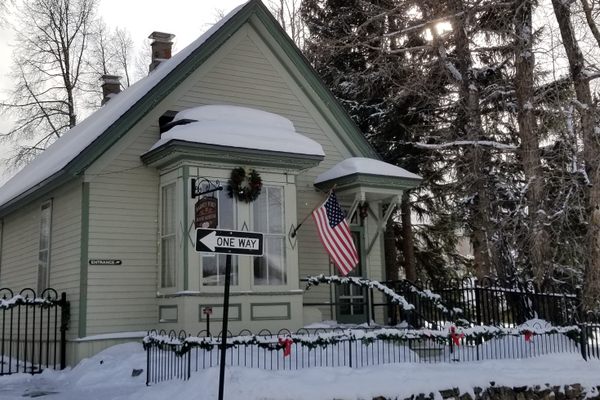
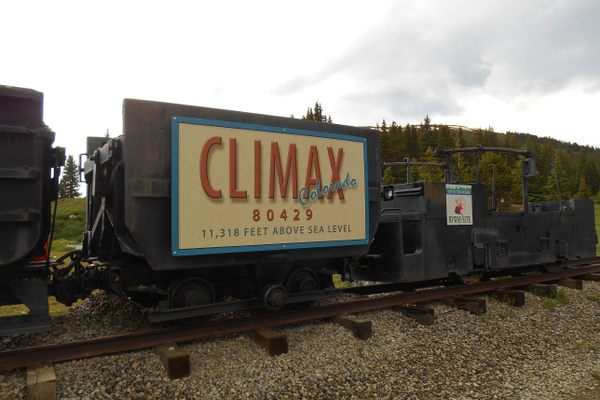





Follow us on Twitter to get the latest on the world's hidden wonders.
Like us on Facebook to get the latest on the world's hidden wonders.
Follow us on Twitter Like us on Facebook